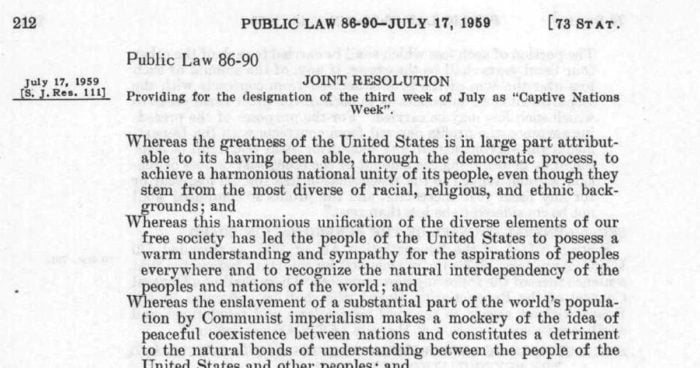
As the United States observes Captive Nations Week from July 17-23, the International Campaign for Tibet calls on Congress to pass the Promoting a Resolution to the Tibet-China Conflict Act without delay.
STATEMENT FROM THE INTERNATIONAL CAMPAIGN FOR TIBET:
In July 1959, mere months after China’s military forced the Dalai Lama into exile from Tibet, the US Congress declared Tibet a “captive nation” in a joint resolution establishing Captive Nations Week.
This July, members of Congress introduced a bipartisan bill called the Promoting a Resolution to the Tibet-China Conflict Act, which can help end China’s decades-long, illegal occupation of Tibet through peaceful dialogue between Chinese and Tibetan leaders.
As the United States once again observes Captive Nations Week from July 17-23, the International Campaign for Tibet calls on Congress to pass the Promoting a Resolution to the Tibet-China Conflict Act without delay.
What the bill does
Reps. Jim McGovern, D-Mass., and Michael McCaul, R-Texas, introduced the bill on July 13, 2022.
The Promoting a Resolution to the Tibet-China Conflict Act will:
- Make it official US policy that the conflict between Tibet and China is unresolved and that Tibet’s legal status remains to be determined under international law
- Recognize that Tibetans have a right to self-determination—and that China’s policies preclude them from exercising that right
- Fault China for failing to meet expectations of participating in dialogue with the Dalai Lama or his representatives
- Reject as “historically false” China’s claim that Tibet has been part of China since ancient times
- Empower the Office of the Special Coordinator for Tibetan Issues to counter Communist Party propaganda about the history of Tibet, the Tibetan people and Tibetan institutions, including His Holiness the Dalai Lama
- Make clear that Tibet includes not only the so-called “Tibet Autonomous Region” of China but also Tibetan areas of Gansu, Sichuan, Qinghai and Yunnan provinces
Captive nation
The Captive Nations Week declaration from 1959 is one of many US government documents from before and after China’s invasion of Tibet that list Tibet as separate from China.
However, the Chinese government has seized on occasional inconsistencies in US statements to claim that the United States recognizes Tibet as part of China.
China has even used these false claims to avoid dialogue with the representatives of the Dalai Lama.
Under international pressure, China held 10 rounds of dialogue with His Holiness’ envoys from 2002-10. But since then, China has refused to get back to the negotiating table, insisting that the Dalai Lama publicly state that Tibet has always been part of China. But His Holiness cannot say that because it isn’t true.
The Promoting a Resolution to the Tibet-China Conflict Act will reject China’s lies about Tibet’s history and pressure the Chinese government to resume dialogue by making it clear that Tibet’s international legal status has not yet been determined.
More than 60 years after China began its illegal occupation of Tibet and Congress recognized Tibet as a captive nation, Congress should help bring an end to Tibet’s crisis by passing the Promoting a Resolution to the Tibet-China Conflict Act.
Tell Congress to pass the bill.
Learn more about the Promoting a Resolution to the Tibet-China Conflict Act.

